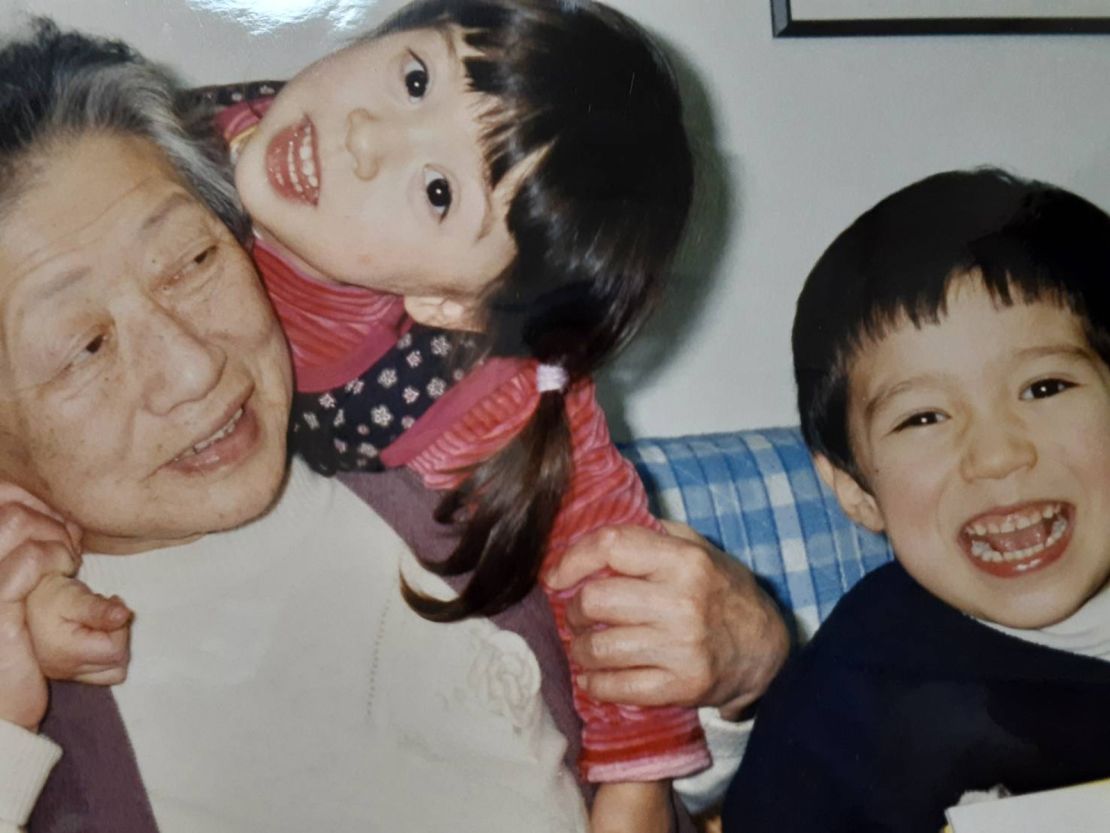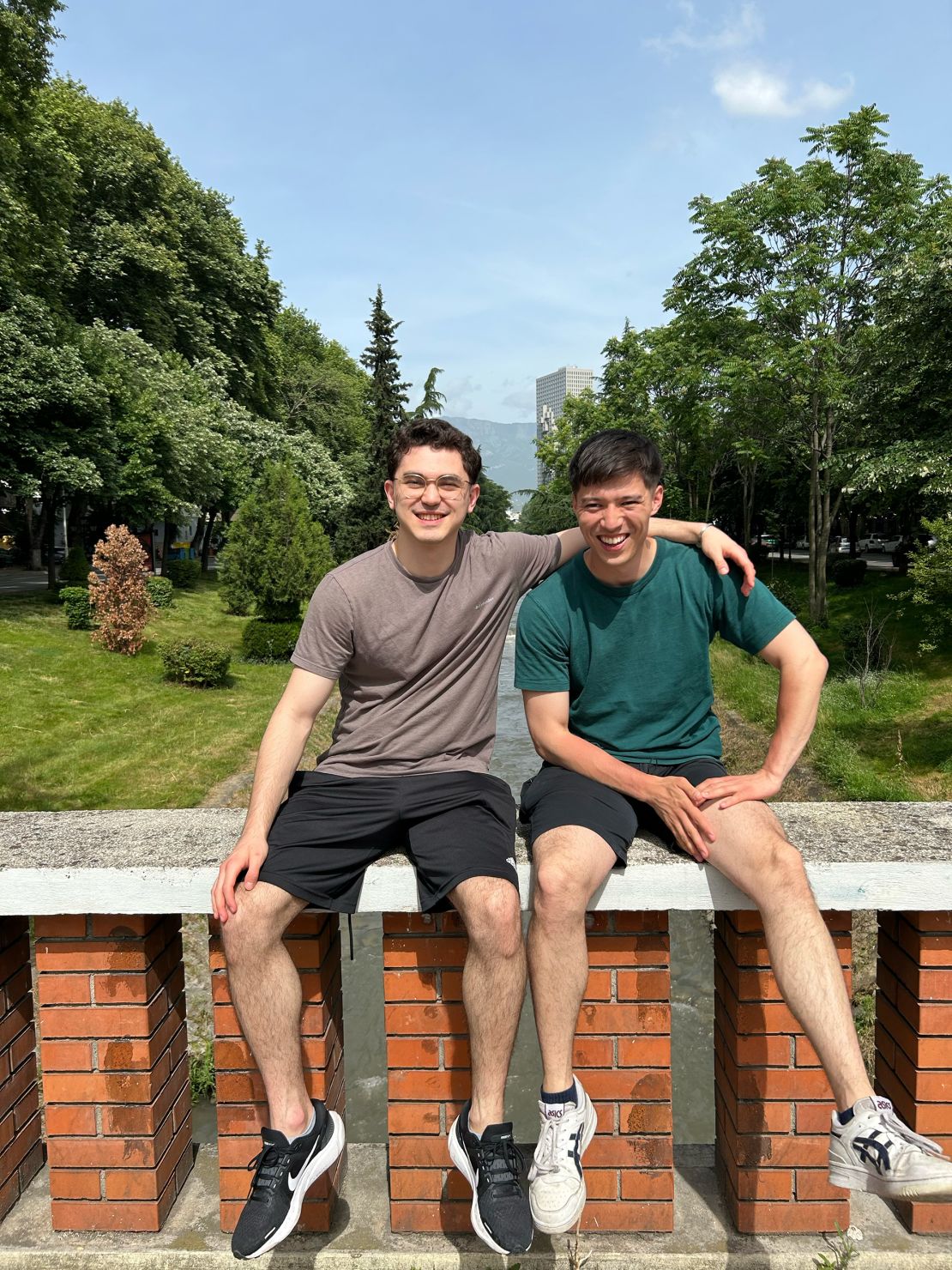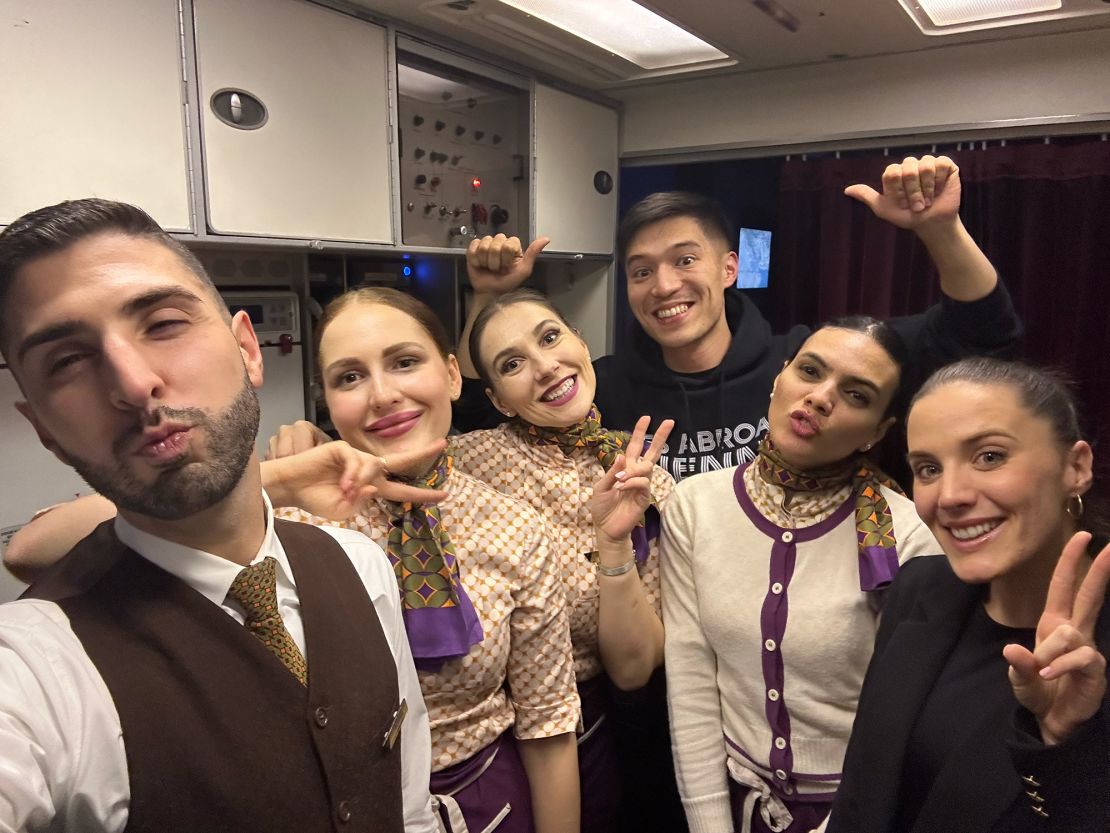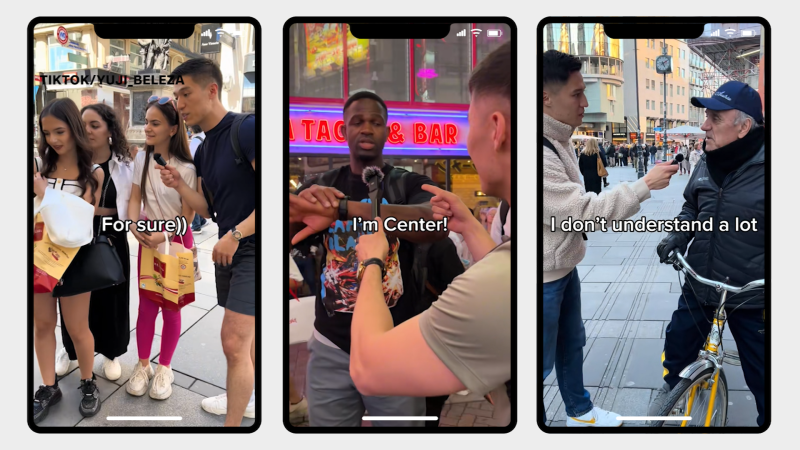CNN
—
“Excuse me, where are you from? I bet I can guess your language.”
When Yuji Beleza strolls through the streets of Vienna, he doesn’t just see crowds. He sees a challenge — and an opportunity to connect.
In spontaneous street interviews, the Japanese-Irish polyglot surprises passersby with greetings in their native language — whether it’s Turkish, Swahili, Kurdish, Kazakh or Zulu.
With his wide smile and quick-fire linguistic reflexes, Beleza has become a social media sensation, amassing over 2.7 million followers on Instagram, 3.6 million on TikTok and another 388,000 on YouTube.
“If you speak at least a few phrases, it’s such a great icebreaker,” says the 27-year-old.
“Especially when I use phrases that surprise people — ones that really matter in their language or culture. You can instantly connect and win over their hearts.”
Beleza discovered his knack for languages — and the power of a simple hello — early in life, thanks to his multicultural upbringing.
He grew up in Kyoto, Japan, with an Irish mother who taught English and spoke four languages — English, Irish, Japanese and Spanish — and a Japanese father who worked as a security guard.
“My sister and I learned early on how to switch between languages,” he recalls.
“And I think I had a pretty broad perspective from a young age because I was always curious and eager to learn about the world.”

He attended local public schools in Kyoto, where he was a good student, played basketball and had friends. Still, he never felt fully accepted as Japanese.
“They always called me a ‘foreigner,’ because I was the only mixed kid in school,” he says. “I had this feeling like I didn’t know where I belonged.”
At 16, Beleza spent a formative year abroad in Tipperary, in the heart of Ireland, to connect with his mother’s culture.
But on the other side of the world, he wasn’t fully embraced as Irish, either.
He gravitated toward the local immigrant community, where he met people from Lithuania and Poland, who were speaking with each other in Russian, their lingua franca.
“I thought, if I wanted to make more friends, I needed to learn Russian, too. That’s what really motivated me back then,” Beleza recalls. “That was my linguistic spark.”
His experience in Ireland inspired Beleza to study Russian in college and spend a student-exchange year in St. Petersburg.
While overseas, he dove into a few more languages — German, Turkish and Serbian — each one offering a new window into another culture.
When learning new languages, Beleza draws on a mix of strategies, from watching videos online to jotting notes in his notebooks, practicing with friends, listening to voice memos on his phone, and studying traditional textbooks.
“Whenever I get a chance to speak in a different language, I always take the chance to practice,” he says. “I have to always train my brain all the time by just talking, talking, talking.”
Particularly interested in developing his German, he decided to pursue a master’s degree in political science in Vienna, Austria, where he could continue practicing the language.
Living in Vienna’s 10th district — known for its large immigrant population — he constantly heard Turkish, Serbian, Arabic and Kurdish spoken around him, and had many opportunities to train his linguistic muscles.
Though he loved living in Vienna, Beleza found himself at a crossroads when he graduated from his master’s program in 2023.
He had dreamed of working in international affairs — perhaps landing a job at the UN or serving as a Japanese diplomat.
While waiting to hear back from job applications, Beleza returned to Japan to look for work.
But as the months passed with no opportunities in sight, he decided to return to Vienna and take a chance on himself.

That’s when Beleza began experimenting with videos on social media.
“One of my best friends, Suleyman, is from Turkey, and he encouraged me to start posting videos of myself speaking Turkish,” recalls Beleza.
At first, the videos focused on Turkish and Japanese cultural mashups.
With Suleyman as his cameraman, Beleza put together playful comedy skits — ordering kebabs, making aryan (a traditional yogurt-based Turkish drink) or poking fun at cultural stereotypes.
Then, when commenters started encouraging him to speak more Kazakh, Beleza leaned into it.
“A lot of people said I looked like I was from Kazakhstan, because of my facial features, and some even thought I was just pretending to be Japanese,” he laughs.
Then he began filming videos in Kazakh, including a now-running joke with followers about his heroic quest to find Kazakh chocolate in Vienna.
“It just snowballed from there,” says Beleza, who was recently named an official Kazakh Tourism Ambassador. “The Kazakh videos weren’t sponsored — they came from genuine love and curiosity about the culture.”
While his first skits may have scored him a few free kebabs here and there, he now counts a wide range of sponsors — from language apps to phone companies to dental care — that have enabled him to turn his love of language into a career.

Those early videos laid the groundwork for Beleza’s current format: quick, spontaneous interviews in dozens of languages.
He now speaks five languages fluently (Japanese, English, Russian, German and Turkish), plus he’s conversational in about 10 more and can greet people in dozens more.
Watching his videos, it’s striking how quickly he recognizes and responds to languages — often within seconds — whether it’s Lithuanian, Lingala, Tunisian Arabic, Slovak, Slovenian, Swahili, Malinké or Armenian.
These days, it’s rare for him to be stumped, though he admits crossing paths with fellow polyglots can be humbling.
“Every conversation reminds me how much I still have to learn,” he says.
In the multicultural streets of Vienna, he scans crowds with intention, sizing up passersby before making his approach.
“I like to hide my mic and come up like a ninja, really fast,” he says. “I want that element of surprise — that little shock — in my videos.”
His favorite moments come when someone who looks reserved lights up after hearing their native language. “Those are the ones that stick with me.”
Of course, not every interaction lands. He estimates only about half of his street approaches turn into conversations — the rest wave him off or walk away. Some react with anger or suspicion.
“All of my best videos came right after a really bad rejection,” Beleza says. “So, I just try to remember that something good is coming right around the corner. And it usually does.”
40 languages and counting
Beleza’s most popular videos spotlight his impressive linguistic skills.
In one viral clip, which has 3.3 million likes on TikTok and 1.55 million on Instagram, he approached a line of people waiting at a water fountain, greeting each one in their language: Algerian, Tagalog, Italian, Chinese and German.
“There’s always a bit of risk since I might not know what language they speak, but that’s part of the appeal,” he says. “People enjoy the awkwardness and unpredictability.”
Though he now speaks at least a few phrases in over 40 languages, Beleza says he still gets tripped up.
“Arabic is tough for me, especially the pronunciation,” he says. “And Southeast Asian languages like Vietnamese and Thai are especially challenging. The tonal structure is something I’m still struggling with.”
Despite what his videos suggest, he doesn’t consider himself a natural.
“I actually didn’t like learning languages in school,” he says. “It wasn’t until my trip to Ireland that I found real motivation.”
Beleza says he inherited his friendly nature from his mother and discipline from his father.
“I’m also good at remembering dates, phrases and details, and I study and practice constantly,” he says.
“It’s my full-time job now, so I am studying and speaking as much as I can every day to train my ear and keep my memory sharp.”
As he roams the streets of Vienna — and sometimes Paris, Astana or Tirana — armed with his iPhone and clip-on Rode mic, a clearer vision for his future is coming into focus.
Together with his current cameraman and manager, Beleza is developing a language-learning platform called Zero to Fluent, designed to make language acquisition more fun and approachable.
Long-term, he dreams of traveling the world, spotlighting languages and cultures through both short-form videos and deeper storytelling projects.
“I want people to see that language isn’t just grammar and vocabulary — it’s about recognition, empathy and joy,” he says.
“Language can divide us, but it also brings us together. And if I can make just one person feel a little more visible, a little more valued — that’s everything.”

